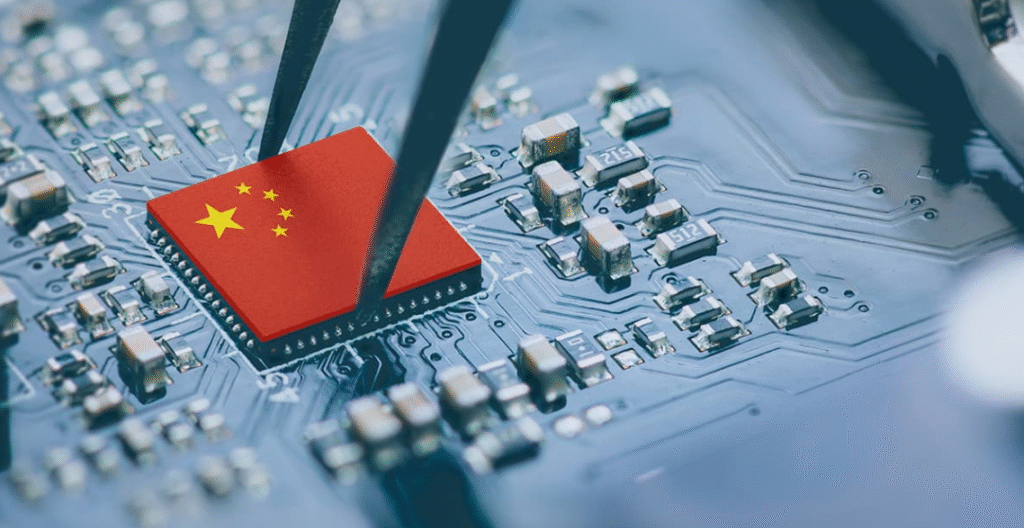When China announced an anti-dumping investigation into US analogue integrated circuits , local chipmakers saw sharp gains almost immediately. This move marks a new front in the ongoing tech war between Beijing and Washington. It also shows how China wants to push its own firms up, reduce reliance on imports, and reshape its semiconductor industry.
What Beijing’s Anti-Dumping Probe Means for US Analogue Chip Imports
Beijing’s probe focuses on mature-node analogue ICs those chips built using older manufacturing technologies often 90 nm or bigger, used in everyday electronics like home appliances, vehicles, sensors, and power management systems. Chinese regulators say the import volume of these US analogue chips rose by 37% from 2022 to 2024, while their average prices dropped by 52%. These sharp price drops, according to industrial groups, hurt domestic manufacturers by undercutting their ability to compete.

The government claims the falling prices suppress domestic sales. Therefore, Beijing filed the anti-dumping case to protect local industry and to level the playing field. It wants either duties or other trade remedies if US firms are found to be dumping that is, selling below fair market value.
How China’s Local Legacy Chipmakers Reacted to New Trade Pressure
Almost instantly after the probe was announced, shares of China’s analogue IC makers rose dramatically. SG Micro, for instance, jumped the maximum limit for a single day’s increase on Shenzhen’s ChiNext board 20%closing at about 87.42 yuan, as investors bet that domestic firms will benefit. Similarly, 3Peak, Novosense Microelectronics, Finemade Microelectronics, and Southchip Semiconductor saw strong gains.
These firms specialize in segments like power management, sensor interfaces, and signal processing. They already have some capacity and experience in analogue chip design. Because of that, many analysts expect them to expand rapidly if the anti-dumping decision leads to higher import costs for foreign suppliers.
Why Analogue Chips Matter in China’s Push for Semiconductor Self-Sufficiency
Analogue ICs may not get headlines like AI or cutting-edge GPU chips, but they are essential for real-world devices from electric vehicles and chargers to industrial machines and smart sensors. Many everyday electronics need analogue chips. Without them, systems that must convert or regulate signals temperature, light, sound, power would suffer.

China has long pushed for domestic substitution making more parts within its borders rather than importing. Targeting the analogue chip imports aligns with its strategy. Beijing wants more firms to design, produce, and sell these chips locally. Over time, reducing imports helps avoid dependency and supply chain disruption, especially if trade tensions rise or foreign suppliers face restrictions.
Risks to Watch Next in the Tech War Over Analogue ICs
While the surge gives local chipmakers an opportunity, it carries risks. The investigation itself may take time, and until duties or measures are in place, foreign suppliers may still continue to sell at low prices. There’s also the risk that China’s firms must scale quickly building new foundries, hiring talent, securing supply of raw materials and errors or capacity bottlenecks could slow progress.
Moreover, retaliation from U.S. companies or the U.S. government is possible. The U.S. might respond with counter-measures, trade restrictions, or other regulatory pressure. Global customers worried about quality or long-term supply stability may hesitate to shift entirely to new suppliers without proven reliability.

